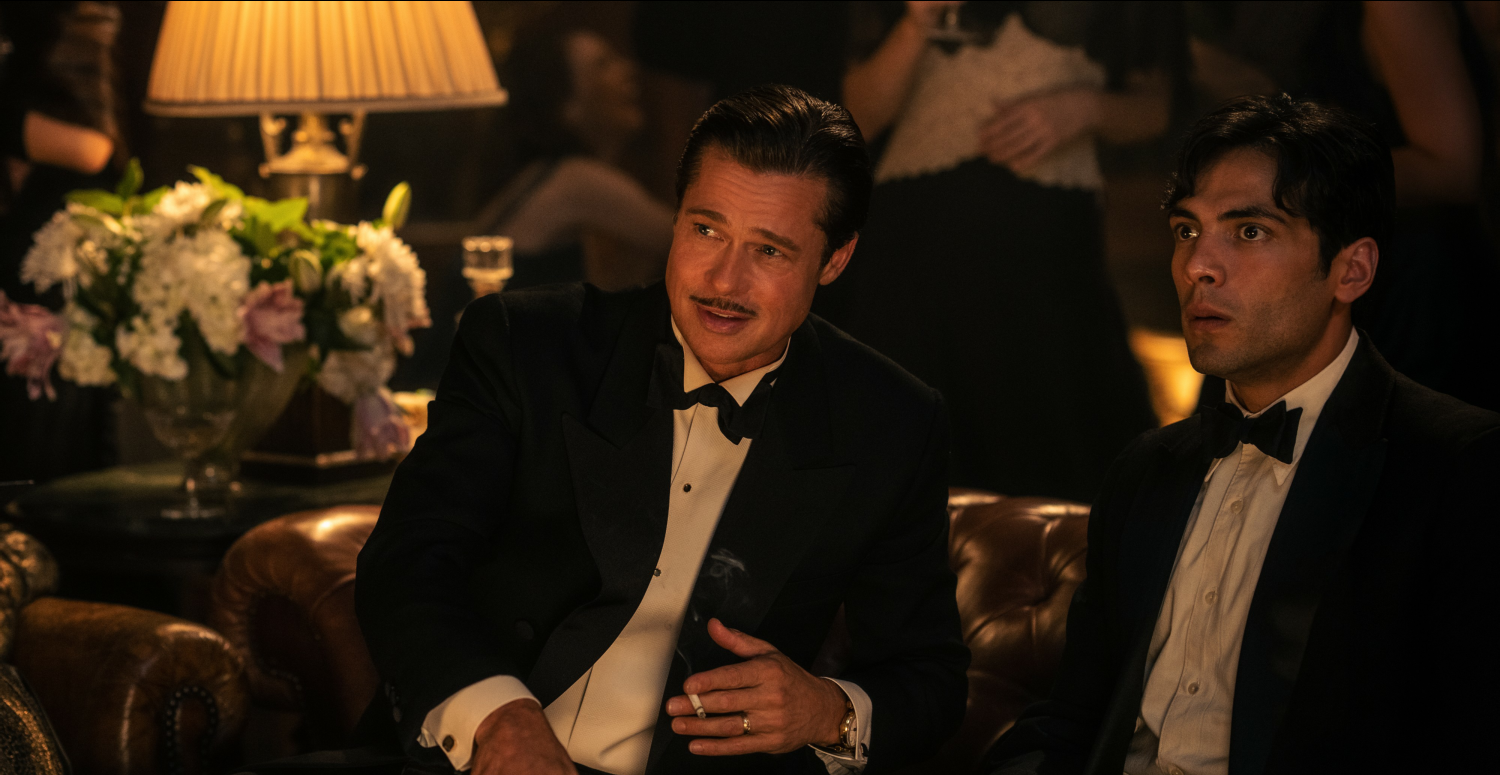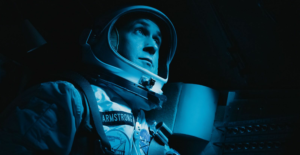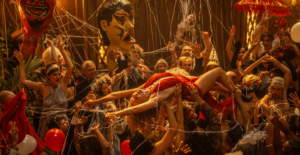Babylon
Best Production Design – BAFTA
Best Original Score – Golden Globe
Excellence in Production Design – ADG
2022/2023

FR EN
“I always wanted to be part of something bigger. Something that lasts, that means something. Something more important than life”.
Dès les premières scènes de « Babylon », Damien Chazelle donne le ton de son film, une fresque sur le premier Hollywood, un Babylone de fêtes et d’orgies qui s’éclipsent peu à peu au profit de récits plus intimistes. Plus qu’un film, c’est sa définition du cinéma que Chazelle nous dévoile, c’est sa déclaration d’amour au 7e art dans laquelle il martèle avec le talent qui est le sien : “Cinema is all and everywhere”.
Alors qu’il aide à l’organisation d’une fête dans l’hacienda du célèbre producteur Don Wallach, Manuel fait la rencontre de Nellie LaRoy, une aspirante star, fascinée par la machine hollywoodienne et ses fastes. Alors qu’il lui partage son rêve de fouler le sol d’un tournage, Manuel devient, par un heureux hasard, l’assistant de Jack Conrad, alors acteur le plus populaire d’Hollywood.
Dans un humour qui conjugue le cinéma des frères Coen et celui des Monthy Pythons, Chazelle enchaîne les situations comiques dans un rythme effréné. Et dans cette hystérie contrôlée, le réalisateur de « La la land » et « Whiplash » use de son plus bel atout, son comparse de toujours, le génial Justin Hurwitz. Par sa musique, Hurwitz fait entrer « Babylon » dans la cour des plus grands films. Chazelle n’a qu’un but, fasciner et émouvoir. Si le premier est rempli dès les premières minutes, le second ne repose que sur le temps. Il parvient ainsi au cours de 3 heures de projection à nous donner les frissons d’un amour impossible.
Si les excès et la folie hollywoodienne recouvrent une bonne partie du film, la nostalgie discrète au début remonte à la surface dans la dernière partie baignant le film dans les regrets d’un monde perdu. Et dans cette fausse nostalgie, Chazelle use de la mise en abîme pour nous dire que le cinéma bat encore et toujours, que la magie est toujours là et que nous en sommes les témoins ne serait-ce que le temps d’une soirée.
Sacha Garcia
« I always wanted to be part of something bigger. Something that lasts, that means something. Something more important than life ».
From the very first scenes of “Babylon”, Damien Chazelle sets the tone of his film, a tale of early Hollywood, a Babylon of parties and orgies that gradually fades into more intimate stories. More than a film, it is his definition of cinema that Chazelle unveils to us, it is his love letter to the 7th art in which he shouts with his talent: « Cinema is all and everywhere ».
While helping to plan a party at the famous producer Don Wallach’s hacienda, Manuel meets Nellie LaRoy, an aspiring star, fascinated by the Hollywood machine and its splendor. While sharing her dream of stepping onto the set of a film, Manuel becomes, by a happy coincidence, the assistant of Jack Conrad, at the time the most popular actor in Hollywood.
With a sense of humor that combines the Coen brothers’ and Monthy Python’s cinema, Chazelle strings together comic situations in a frantic rhythm. And in this coordinated hysteria, the director of “La La Land” and “Whiplash” relies on his best asset, his long-time partner, the brilliant Justin Hurwitz. With his score, Hurwitz brings “Babylon” into the realm of major great pictures. Chazelle has only one goal, to mesmerize and move. If the first one is fulfilled from the first minutes, the second one is only based on time. He manages to give us the thrill of an impossible love during a 3-hour screening.
If the excesses and the Hollywood madness cover a big part of the film, the subtle nostalgia at the beginning rises to the surface in the last part dipping the film in the regrets of a lost world. And in this false nostalgia, Chazelle plays with the mise en abyme to tell us that the cinema still thrives, that the magic is still there and that we are the witnesses of it, even if only for a night.
Sacha Garcia

